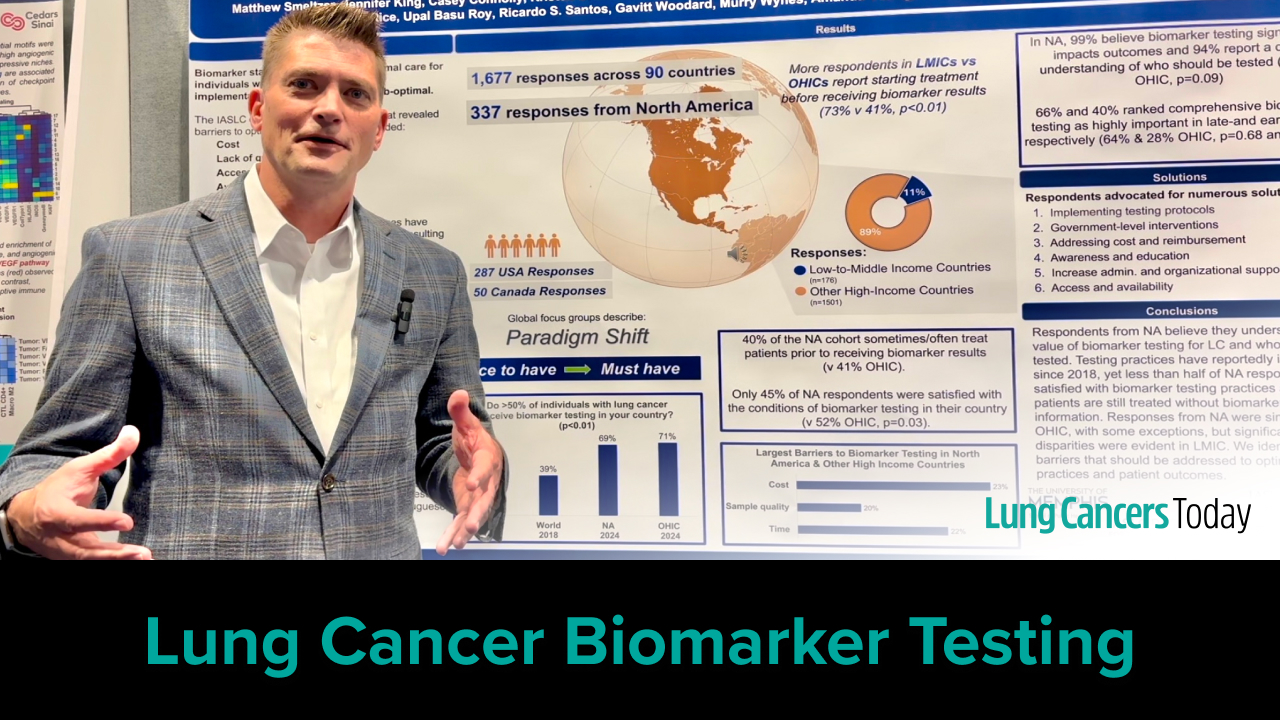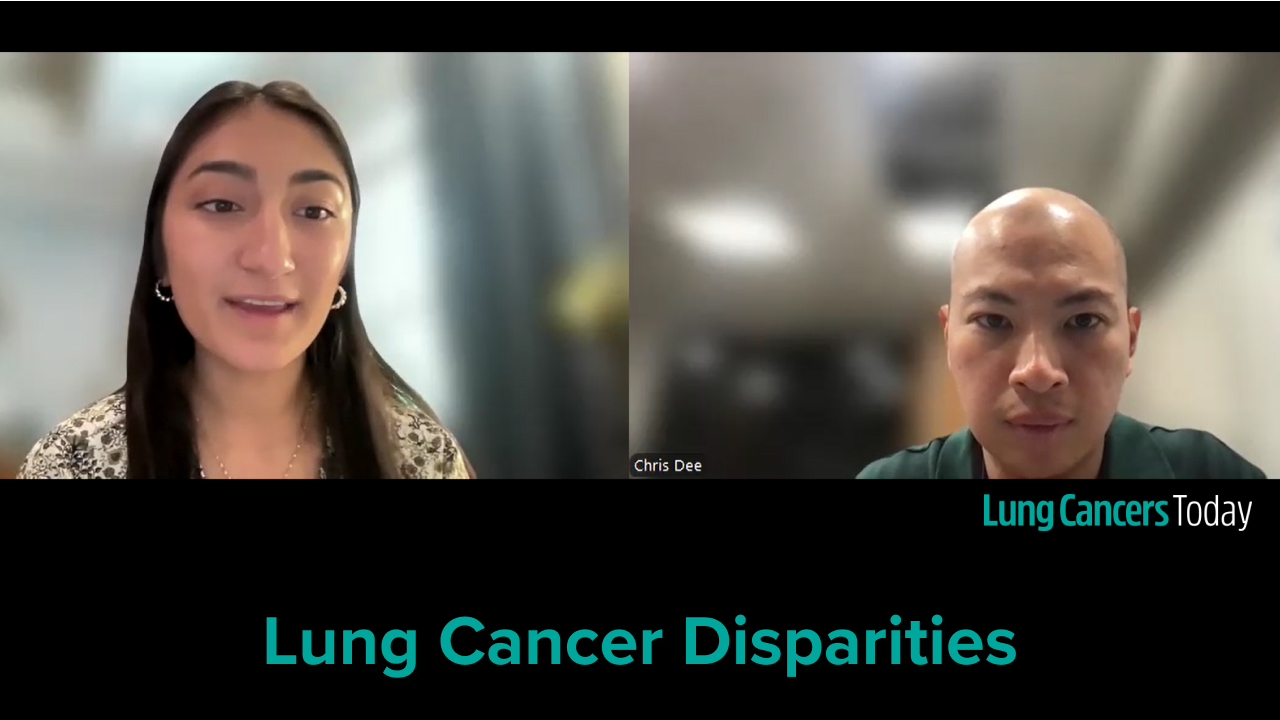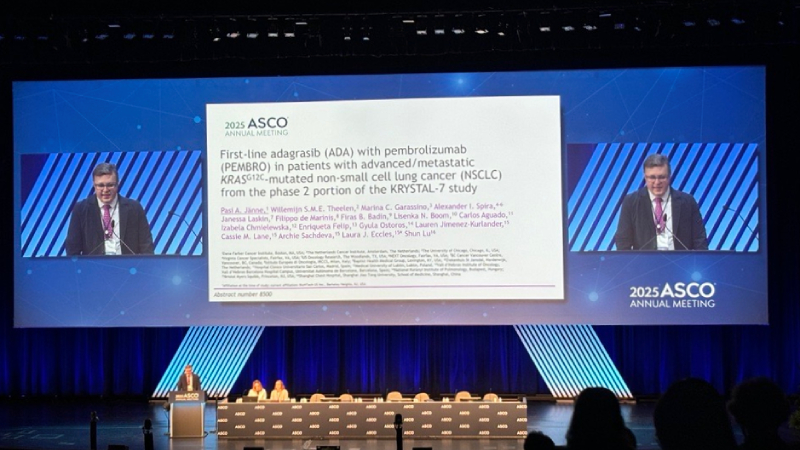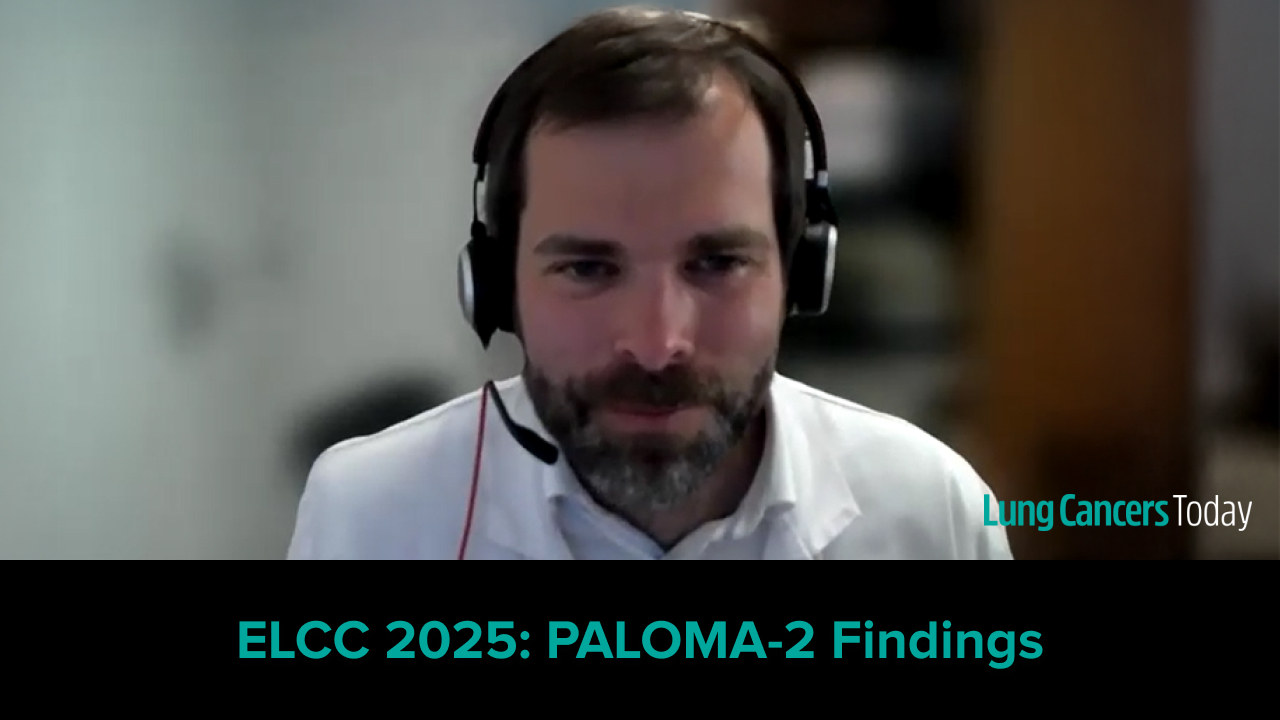Laura Litwin
Laura Litwin
Articles by Laura Litwin
Laura LitwinEGFR+ NSCLC | June 16, 2025
Local therapy is recommended by NCCN guidelines, but how it is used in oligoprogressive disease is not well described.Laura LitwinNon-Small Cell Lung Cancer | June 11, 2025
The organization also granted priority review, breakthrough designation, and orphan drug designation to the application.Matthew Smeltzer, PhDASCO 2025 | June 20, 2025
The study compared results from North America with global results by high-income and low- or middle-income countries.Shriya GargASCO 2025 | June 3, 2025
Palliative care researchers discuss differences in lung cancer treatment disparities across Hispanic patient subgroups.Helena Yu, MDASCO 2025 | June 6, 2025
Helena Yu, MD, discusses research updates from REZILIENT1 that were presented at ASCO 2025.Laura LitwinConference Coverage | June 2, 2025
The study compared treatment with neoadjuvant osimertinib with or without chemotherapy versus chemotherapy alone.Laura LitwinASCO 2025 | June 1, 2025
Efficacy results, safety data, and survival data from the phase 2 study were presented at the ASCO 2025 Annual Meeting.Study Highlights Relationship Between Lipid Metabolism, NK Cells in the NSCLC Tumor Microenvironment
Laura LitwinImmunotherapy in NSCLC | May 16, 2025
Study investigators suggested there may be a “promising therapeutic strategy for advancing NK cell-based immunotherapy."Jared Weiss, MDELCC 2025 | May 2, 2025
Dr. Weiss noted the results in both feasibility and safety, particularly via injection, which had limited complications.Laura LitwinELCC 2025 | May 1, 2025
The study explored the effect of immune checkpoint inhibition on real-world patients with NSCLC versus trial patients. Nicolas Girard, MD, PhDELCC 2025 | April 16, 2025
Nicolas Girard, MD, PhD, discusses data on subcutaneous amivantamab in patients with advanced NSCLC. Marc Ladanyi, MDELCC 2025 | April 10, 2025
Dr. Ladanyi reflects on genetic hotspot mutations that have not been previously well characterized in lung adenocarcinoma.Nicolas Girard, MD, PhDELCC 2025 | March 27, 2025
The study is evaluating regimens to prevent dermatologic adverse events in patients receiving amivantamab plus lazertinib.Nicolas Girard, MD, PhDELCC 2025 | March 26, 2025
Final overall survival data from the phase 3 study demonstrated significant benefits for patients with EGFR-mutated aNSCLC. Laura LitwinLung Cancer | March 21, 2025
The study authors evaluated the physical, psychosocial, and lifestyle challenges faced by patients with lung cancer.Laura LitwinMesothelioma | March 20, 2025
Most patients with MPM experience pleural effusion, but questions remain about the condition's impact on patient outcomes.Wui-Jin Koh, MDConference Coverage | March 19, 2025
The NCCN 2025 Annual Conference will be held from March 28-30 in Orlando, Florida. Laura LitwinMesothelioma | March 18, 2025
Expanded treatment options for pleural mesothelioma are "urgently needed," due to the high morbidity of the disease. Laura LitwinLung Cancer | March 12, 2025
Learn how researchers determined the best treatment strategy for smoking cessation among patients who currently smoke.Laura LitwinNon-Small Cell Lung Cancer | February 27, 2025
Clinicians hypothesize that the genetic mutation, known as RUFY1-RET fusion, caused resistance to lorlatinib. Connect
 © 2025 Mashup Media, LLC, a Formedics Property. All Rights Reserved.
© 2025 Mashup Media, LLC, a Formedics Property. All Rights Reserved.



















